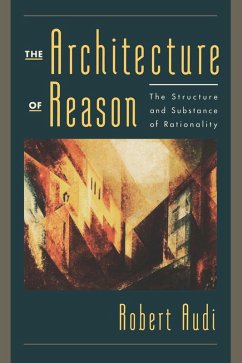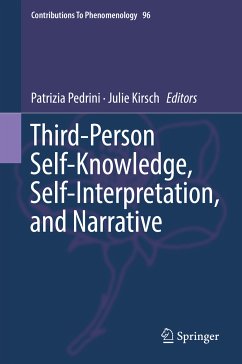
Action, Knowledge, and Will (eBook, PDF)

PAYBACK Punkte
8 °P sammeln!
What is the difference between the movements in our bodies we cause personally ourselves, such as the movements of our legs or our lips when we walk or speak, and the movements we do not cause personally, such as the contraction of the heart? Is an act that is done under duress done voluntarily, out of choice? Should duress exculpate a defendant completely, or should it merely mitigate the criminality of an act? When we explain an intentional act by stating our reasons for doing it, do we explain it causally or teleologically, or both? Should we care whether our choices are guided by knowledge...
What is the difference between the movements in our bodies we cause personally ourselves, such as the movements of our legs or our lips when we walk or speak, and the movements we do not cause personally, such as the contraction of the heart? Is an act that is done under duress done voluntarily, out of choice? Should duress exculpate a defendant completely, or should it merely mitigate the criminality of an act? When we explain an intentional act by stating our reasons for doing it, do we explain it causally or teleologically, or both? Should we care whether our choices are guided by knowledge or mere true belief? In Action, Knowledge, and Will, John Hyman explores these and other central problems in the philosophy of action and the theory of knowledge, and connects these areas of enquiry in a new way. The main premise of the book is that human action has four irreducibly different dimensions, each with its own family of concepts: - a physical dimension, in which the principal concepts are those of agent, power, and causation; - a psychological dimension, with the concepts of desire, aim, and intention; - an ethical dimension, with the concepts of voluntariness and choice; - an intellectual dimension, with the concepts of reason, knowledge, and belief. Studying each of these dimensions of human action separately yields a string of original results, culminating in a new analysis of the relationship between knowledge and rational behaviour, which provides the foundation for a new theory of knowledge itself.
Dieser Download kann aus rechtlichen Gründen nur mit Rechnungsadresse in A, B, BG, CY, CZ, D, DK, EW, E, FIN, F, GR, HR, H, IRL, I, LT, L, LR, M, NL, PL, P, R, S, SLO, SK ausgeliefert werden.













